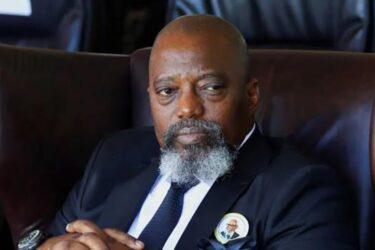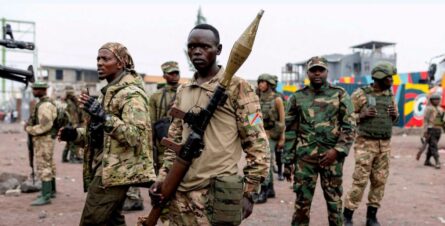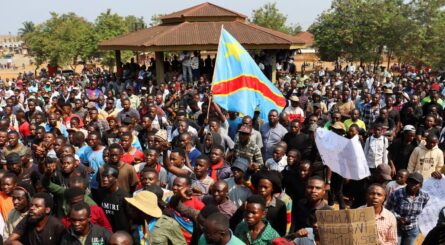

The Democratic Republic of Congo (DRC) has suspended the political party of former President Joseph Kabila, accusing him of collaborating with the M23 rebel group, which has captured swathes of eastern DRC in recent months.
The ban on the People’s Party for Reconstruction and Democracy (PPRD) was announced shortly after reports emerged that Kabila had returned to Goma—an eastern city currently under the control of the Rwandan-backed M23 rebels—after spending two years in South Africa.
Kabila, who ruled the country from 2001 to 2019, has not publicly confirmed his return, but his spokesperson Barbara Nzimbi said on X (formerly Twitter) that he would address the nation “in the coming hours or days.” Senior officials from his party have denied that he is currently in Goma.
The DRC Interior Ministry stated that the PPRD was suspended due to its “ambiguous attitude” toward the occupation of Congolese territory by M23, and “noted with concern” that Kabila was receiving protection in a region now controlled by what the government refers to as the “enemy.”
The government went further on Friday, accusing Kabila—now 53—of high treason and ordering the seizure of his property and assets. While Kabila has previously denied any links to M23, he has not responded directly to these latest accusations.
Who is M23?

The M23, or March 23 Movement, is a rebel group composed mainly of Congolese Tutsi fighters who mutinied from the Congolese army in 2012.
The group takes its name from a failed peace agreement signed on March 23, 2009, which they say the government failed to implement.
That agreement had promised the integration of the rebel fighters into the national army and political representation.
M23 launched a major offensive in 2012, capturing Goma for a short period before being forced to retreat by a UN-backed Congolese military offensive. After years of relative dormancy, the group re-emerged in late 2021 and has since seized large parts of North Kivu Province, including key towns near Goma.
The resurgence of M23 has reignited regional tensions, particularly between DRC and neighboring Rwanda. The Congolese government and the United Nations have both accused Rwanda of supporting and arming the M23 rebels—a claim Kigali has repeatedly denied.

However, a 2023 report by a UN group of experts found credible evidence that Rwandan troops were directly supporting M23 operations inside Congolese territory, including providing logistical support and sophisticated weapons. The report also alleged that M23 maintained supply lines through Rwandan territory and had received reinforcements from Rwandan military personnel.
Rwanda has maintained that any accusations against it are politically motivated and insists that the security crisis in eastern Congo is an internal matter rooted in ethnic tensions and governance failures.
President Félix Tshisekedi’s administration has described the M23 and its alleged backers as part of a broader coalition aiming to destabilize the country and unseat the current government. He recently warned that the rebels, now emboldened, were planning to march on Kinshasa if their demands were not met.
With Kabila now at the center of these explosive accusations, the situation in eastern Congo appears increasingly volatile. The suspension of the PPRD and the charges of treason mark a dramatic escalation in both political and military tensions in a region already burdened by decades of conflict.
The international community continues to call for dialogue and a regional approach to de-escalation, but on the ground, the situation remains fragile as rival factions brace for further confrontations.